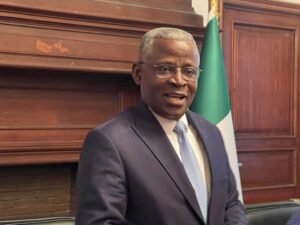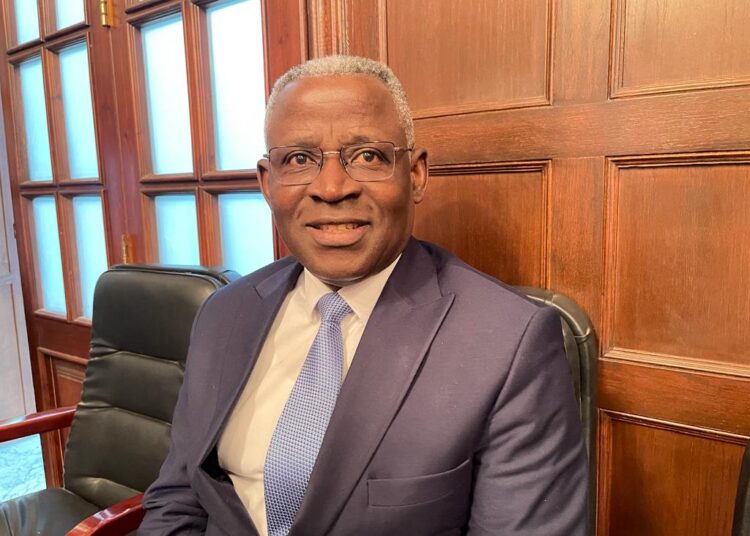Ghanaian Ambassador to Cairo, Obed Boamah Akwa, has praised the economic reforms Egypt initiated in the past years and the major national projects it launched in infrastructure, health and education.
In an exclusive interview with The Egyptian Mail, Ambassador Akwa expected such reforms and giant projects to put Egypt in what he described as a ‘completely different position’ in the coming period.
He expressed optimism about the investment prospects of the New Administrative Capital, expecting the megacity to attract more investors to Egypt in the future.
The new capital, he said, could become the Middle East’s and Africa’s next healthcare hub.
“Egypt has the potential to become a healthcare hub in the region,” Ambassador Akwa said. “It will save Africans the pain of travelling to countries far away from them for medical treatment.”
An international medical city is planned to be established in the New Administrative Capital, whose construction moves forward several steps with every passing day.
The construction of the medical city is being supervised by hundreds of Egyptian medical specialists with a magnificent record at home and abroad.
Ambassador Akwa expressed hopes that Egypt and Ghana could work together in this field.
Cairo and Accra enjoy strong and distinguished historical relations that date back to the 19950s, specifically when Ghana gained its independence from Britain in 1957.
Ghana has been at the Centre of Egyptians’ attention since the era of President Kwame Nkrumah. Egypt was a strong backer of the Ghanaian leader.
Nkrumah led his country in its struggle for independence. He was married to Egyptian Fathia Nkrumah.
Egypt was one of the earliest countries in the African continent to establish diplomatic relations with Ghana. Nkrumah was also a close friend of Egyptian revolutionary leader, Gamal Abdel Nasser.
Egyptian-Ghanaian relations, Ambassador Akwa said, are distinguished by their historical depth and mutual respect in the light of Egyptian support to Ghana in all political, economic and cultural fields.
He credited Egypt for providing assistance and training for Ghanaian cadres in the fields of health; security; media, and tourism.
This training, the ambassador said, had a great impact on developing the technical capabilities of Ghanaians in various fields as their country moves ahead on the road to comprehensive development.

Egypt also supports Ghana’s efforts in developing the tourism sector by organising training courses for Ghanaian tourism workers.
The courses are funded by the Egyptian Agency of Partnership for Development, the Egyptian Foreign Ministry’s mechanism for enhancing relations with fellow African states.
The Egyptian government also works to facilitate contacts between local contracting companies and their peers in Ghana on the road to hammering out partnerships for the implementation of construction and infrastructure projects in Ghana.
Cairo and Accra also work to enhance their military co-operation, according to Ambassador Akwa.
He referred to what he described as an ‘increased momentum’ in military exercises between the two countries.
Ambassador Akwa attended the second edition of Egypt’s International Defense and Military Industries Exhibition which was held in Cairo late last year.
“The exhibition was an opportunity for the exchange of expertise among officials in leading global and local bodies in the fields of defense and military industries,” the ambassador said.






Discussion about this post